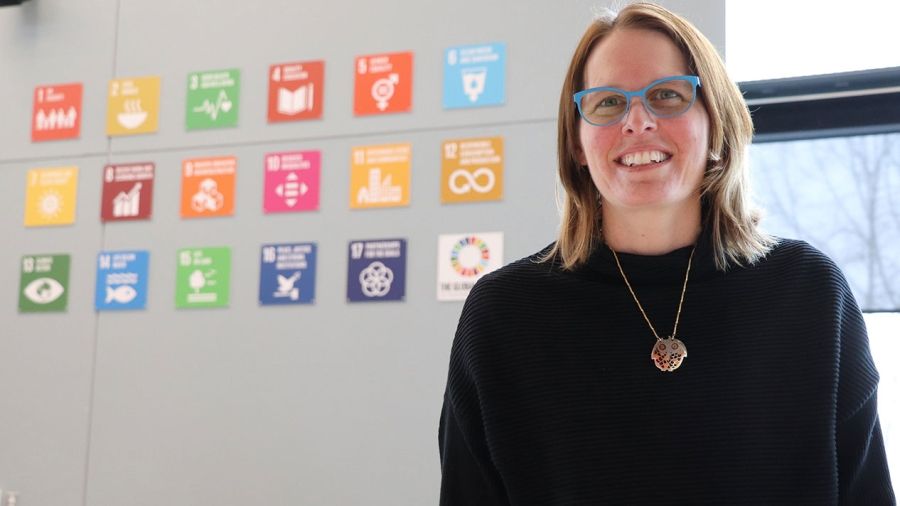
Post-secondary institutions across the country are coming together to help make campuses more inclusive with the new Reducing Barriers to Education digital platform—and Selkirk College has been instrumental in facilitating this collaboration.
The platform provides a place where institutions can post information about homegrown initiatives to increase access to education. Details might include how a project was designed and funded, and how to get more information. As a repository of initiatives that are having an impact, the platform can eliminate some of the legwork associated with conceiving of and launching a new project.
“The platform gives us a place to demonstrate the projects we’re taking on as institutions and share ideas,” says Kate Nott, chair of the School of Academic Upgrading & Development at Selkirk College, who has been involved in the pan-Canadian project since its inception in 2019. “The goal is to help us avoid reinventing the wheel on common issues.”
A National Network of Care and Collaboration
The platform grew out of Colleges & Institutes Canada’s (CICan) commitment to support productive collaboration among institutes, using the framework of the United Nations’ 17 Sustainable Development Goals (SDGs) to set priorities and measure outcomes.
“The SDGs offer valuable guidelines to help tackle some of the most pressing challenges of our time and ensure that all people enjoy peace and prosperity in a healthy environment,” explains Denise Amyot, CICan president and CEO.
CICan launched the ImpAct initiative in 2019 with four national projects aimed at making practical progress on the SDGs. As founding member of the project to increase accessibility, Selkirk College is continuing its commitment to dismantle systemic barriers to education—both in the Kootenays and across the nation.
Working alongside representatives from New Brunswick Community College, Cégep du Vieux Montréal, Durham College (Ontario), NorQuest College (Alberta) and Vancouver Island University, Nott helped develop the Reducing Barriers to Education platform to target two specific SDGs: ensuring equitable access to quality education and reducing inequalities. Many of the featured projects, however, touch on an array of goals, including achieving gender equality and promoting productive employment for all.
Selkirk College has proven a national leader in taking action on advancing the SDGs. It was one of the first post-secondary institutions in the country to sign the SDG Accord—which entails striving toward the goals and reporting on progress—and work is being done across the college that touches on all 17 of the goals.
“Being involved in this project since the beginning has helped strengthen our focus on accessible education here at Selkirk College,” says Nott. “It has also created a national network of care and collaboration that will help advance the SDGs in institutions across the country.”
To find out more, visit the new website.
Learn more about the SDGs at Selkirk College and join us on Facebook.
Kate Nott, Selkirk College’s chair of the School of Academic Upgrading & Development, is helping to reduce barriers to education on campuses across the country.
The chair of the School of Academic Upgrading & Development, Kate Nott (right) chats with some students from the SOAR Program outside Nelson's Silver King Campus.
